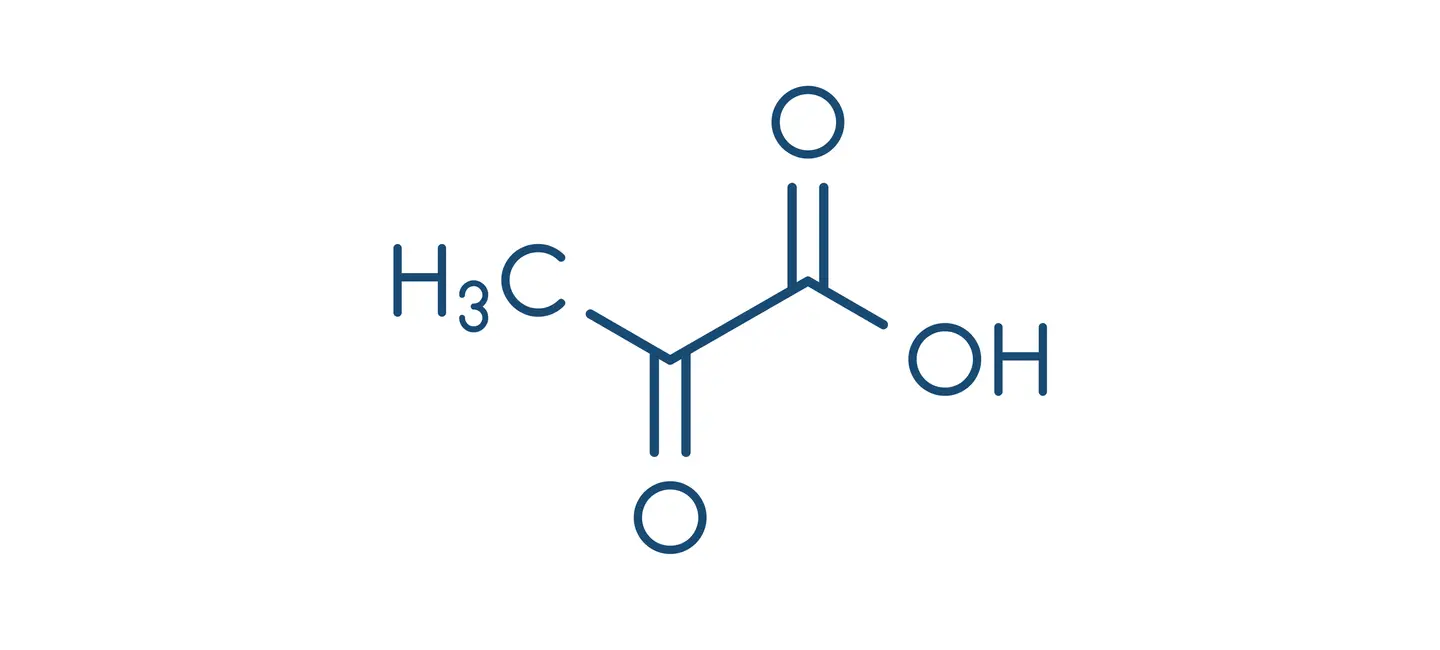
Pyruvate is a three-carbon acid that is naturally formed during glycolysis, the process in which the body breaks down sugar (glucose).
Pyruvate might increase the breakdown of fat, which could improve weight loss. Pyruvic acid seems to cause the outer layer of skin cells to slough off, which might benefit some skin conditions.
People use pyruvate for obesity, acne, high cholesterol, cataracts, athletic performance, and many other conditions, but there is no good scientific evidence to support most of these uses.
Is It Effective?
NatMed Pro rates effectiveness based on scientific evidence according to the following scale: Effective, Likely Effective, Possibly Effective, Possibly Ineffective, Likely Ineffective, Ineffective, and Insufficient Evidence to Rate.
- Acne. Applying a pyruvic acid skin peel might improve acne in some people.
- Obesity. Taking pyruvate by mouth while dieting and exercising might improve weight loss by a small amount in people who are overweight and obese.
There is interest in using pyruvate for a number of other purposes, but there isn't enough reliable information to say whether it might be helpful.
Is it Safe?
When taken by mouth: Pyruvate is possibly safe when used appropriately for up to six weeks. Side effects such as stomach upset, gas, bloating, and diarrhea might occur when used in doses above 30 grams daily.
When applied to the skin: Facial peels containing up to 50% pyruvic acid are possibly safe when applied by a healthcare professional. Severe skin burning might occur. It should only be applied to small patches of skin at a time.
When inhaled: Pyruvate is possibly safe when used in a nebulizer for up to six weeks.
Special Precautions & Warnings:
Pregnancy and breast-feeding: There isn't enough reliable information to know if pyruvate is safe to use when pregnant or breast-feeding. Stay on the safe side and avoid use.
Irritable bowel syndrome (IBS): Taking high amounts of pyruvate, such as 30 grams daily or more, might cause diarrhea, loose stools, and bloating.
It is not known if Pyruvate interacts with any medicines. Before taking Pyruvate, talk with your healthcare professional if you take any medications.
There are no known interactions with herbs and supplements.
There are no known interactions with foods.
Pyruvate has most often been used by adults in doses of 6-40 grams by mouth daily for up to 6 weeks. It's also been used in topical products such as facial skin peels and creams. Speak with a healthcare provider to find out what type of product and dose might be best for a specific condition.
2-Oxopropanoate, 2-Oxopropanoic acid, 2-Oxypropanoic Acid, Acetylformic Acid, Acide Acétylformique, Acide Alpha-Kéto, Acide Oxo-2 Propanoïque, Acide Pyruvique, Alpha-Keto Acid, Alpha-Ketopropionic Acid, Calcium Pyruvate, Calcium Pyruvate Monohydrate, Creatine Pyruvate, Magnesium Pyruvate, Monohydrate de Pyruvate de Calcium, Piruvato, Potassium Pyruvate, Proacemic Acid, Pyruvate de Calcium, Pyruvate de Créatine, Pyruvate de Magnésium, Pyruvate de Sodium, Pyruvic Acid, Sodium Pyruvate.
Information on this website is for informational use only and is not intended to replace professional medical advice, diagnosis, or treatment. While evidence-based, it is not guaranteed to be error-free and is not intended to meet any particular user’s needs or requirements or to cover all possible uses, safety concerns, interactions, outcomes, or adverse effects. Always check with your doctor or other medical professional before making healthcare decisions (including taking any medication) and do not delay or disregard seeking medical advice or treatment based on any information displayed on this website.
© TRC Healthcare 2024. All rights reserved. Use and/or distribution is permitted only pursuant to a valid license or other permission from TRC Healthcare.
